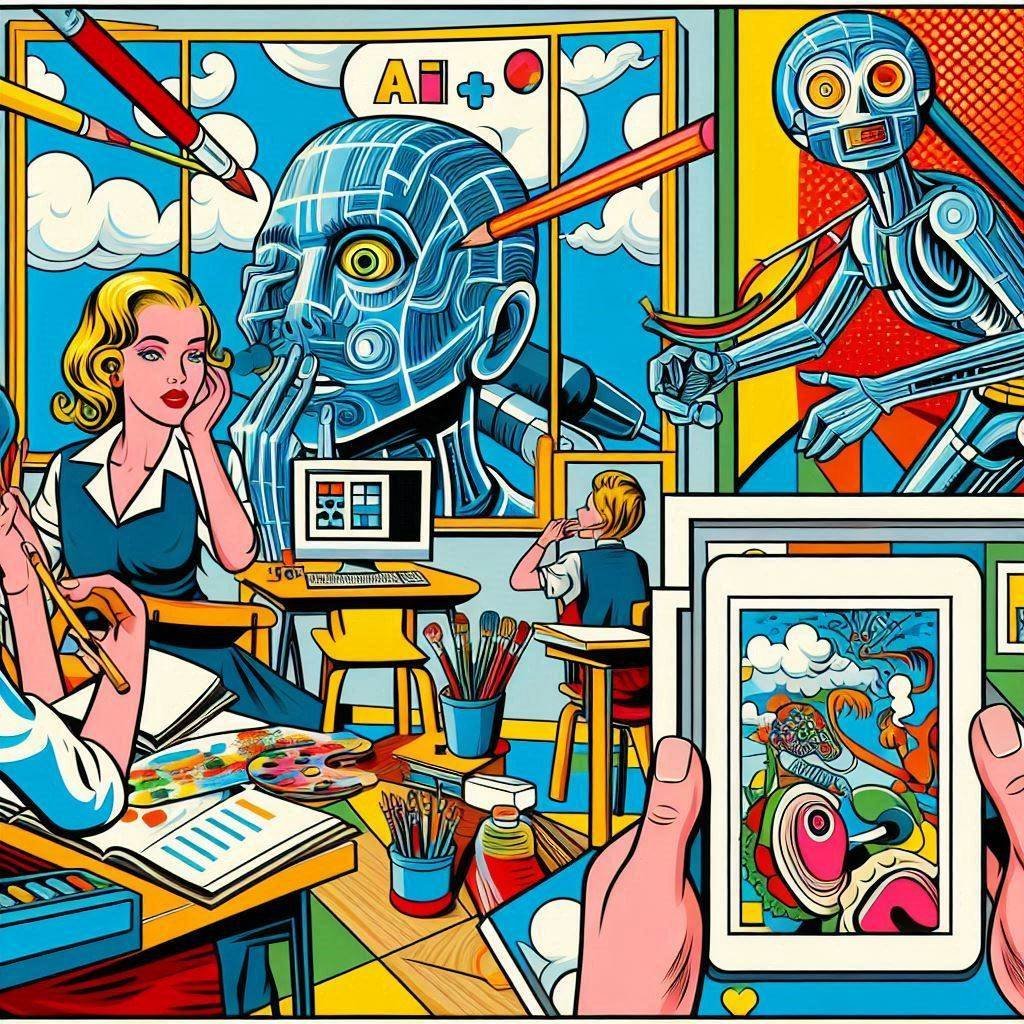I’ve been experimenting a lot with using AI, especially for summarising long documents. For example, I used Google’s Notebook LM to summarise the transcript of a Westminster Education Forum on the future of AI in Education, and the KCL report on Computing Education.
In each case, I also undertook a lot of the summarising for myself, because I didn’t quite trust the AI. As it happens, in each case it did a pretty good job, the main, possibly the only difference being that it was taking me several hours and Notebook LM several minutes. And in each case I got a podcast discussion as a sort of (lighthearted) bonus.
However, at the risk of sounding obvious, these summaries lacked the human touch. I don’t mean that they didn’t contain touchy-feely sentiments (they didn’t, thank goodness). No, what they lacked was the depth and insight that a human expert can bring to the table.
As an example of what I mean, here is an article I wrote for my newsletter about 15 years ago:
“What does the Ofsted report say about ICT?
The latest annual report from the Office of Standards in Education (Ofsted) doesn’t say much about ICT, but what it does say is not entirely positive. Unfortunately, there is almost no information provided on why the ICT is good or bad, and one of the statements – “At its best [ICT] enhances teaching, engages students and supports independent learning. However, when used less creatively, it can fail to add value to learning.” – tells us nothing that we didn’t know already. We might say that this statement fails to add value to our knowledge. Indeed, as far as ICT is concerned, this is true of the whole report. So what the report does is give us a snapshot of what’s going on overall, ie not just in ICT, but not really much extra.
Here’s what it says.
The not so good bits:
“… where there are weaknesses in teachers’ subject knowledge, they are most likely to be found in mathematics, information and communication technology and science.
In satisfactory and inadequate colleges, there are particular subject weaknesses in … information and communication technology.
In the colleges visited, …. Poorer areas included … information and communication technology, in which less than a third of the provision was good.
Success rates in the key skills of communications, numeracy and information technology are often low and learners’ performance may be limited by poor attendance and punctuality. Managers’ expectations of learners are too low and individual target-setting is unambitious.”
On the positive side:
“In Further Education, learners are stimulated and challenged by high-quality learning materials, including information learning technology.
In sixth form colleges, the use of information learning technology is increasing. At its best It enhances teaching, engages students and supports independent learning. However, when used less creatively, it can fail to add value to learning.
The overall volume of adult and community learning provision is falling, but information and communication technology is one of the five main sector subject areas which now make up the majority of provision.
The quality of English for speakers of other languages (ESOL) teaching has risen in line with improved information and communication technology facilities, [and other factors]. “
An example of a well-structured lesson was taken from an ICT lesson in a further education college.
The lesson was well-paced with clear objectives, and sequenced well, with learning being built up incrementally, each task laying the foundations for the next. I think what we can glean from this report, in a nutshell, is that:
∙ ICT remains a popular subject;
∙ Good ICT facilities can aid learning;
∙ ICT, when used well, can be stimulating and encourage and support independent learning;
∙ Subject expertise is important; and
∙ Setting expectations which are not too low is crucial.”
In other words, what I did that the AI wouldn’t have done (unless I propmted it to) was take a report that was not about ICT and extracted the bits that were relevent to ICT teachers.
I did a similar thing in another article which addressed what ICT teachers mcould glean from the then new Ofsted Framework.
I also did the same sort of thing as an ICT advisor in a London Borough, where I would summarise the latest Ofsted ICT report and localise it to include resources and address issues that I knew we had locally.
From these ruminations I should recommend the following when using AI to summarise a document or report nthat could be useful for your professional development and classroom practice.
First, if the report is not about Computing you could ask the AI to draw out the excerpts or draw inferences that would be relevant to you as a Computing teacher. I think you would need to check afterwards that the result is actually useful rather than a load of generic waffle.
Second, adapt the result to your local needs, such as the school you teach in.
Do I recommend using the AI in the first place? Definitely. Not only does it save hours, but it also very helpfully suggests follow-up questions that, in my case, I hadn’t thought of. In the case of Google’s Notebook LM, it will also give you a summary that is appreciably shorter than the ‘executive summary’ provided in the report itself. It will also give you the option of comnsuming the information in different or complementary ways, such as a study guide or a podcast discussion.
But as with any technology, remember: caveat emptor.


